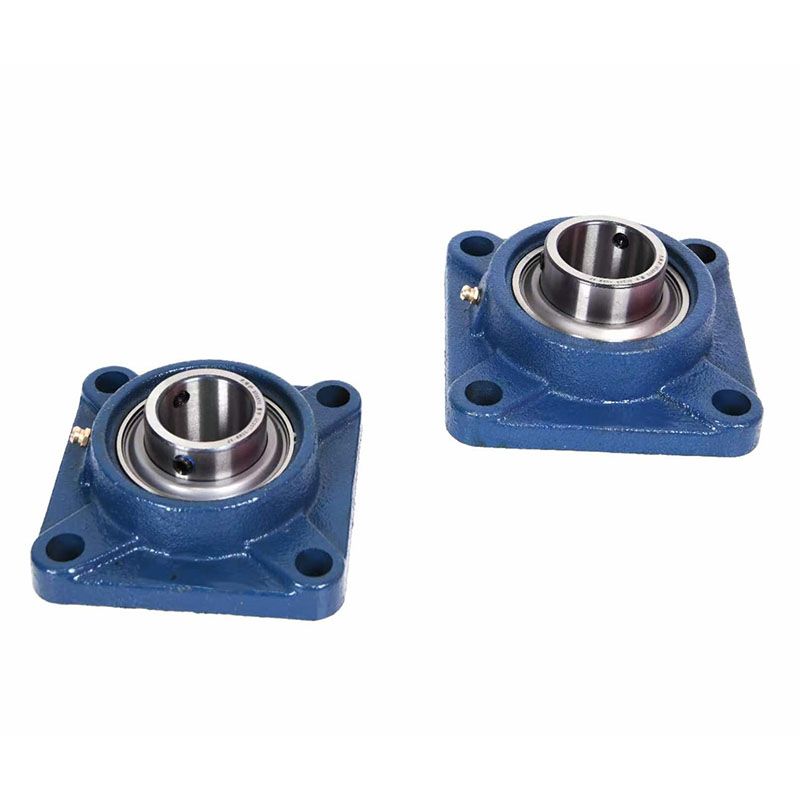Apr . 26, 2024 10:20 Back to list
4 Ways a Bad Wheel Bearing Can Affect Your Vehicle
Wheel bearings play an integral role in your vehicle's drive axle assembly, but they're also one of the most overlooked components on your vehicle. In fact, you might pay attention to your wheel bearings only when something goes wrong. But driving on a bad wheel bearing can eventually cause severe damage to your vehicle. You may even end up with a seized-up wheel, in some extreme cases.
You should know how a bad wheel bearing affects your vehicle so you can diagnose other wheel-related issues. The following offers four common issues you might experience if your vehicle's wheel bearings decide to bite the dust.
Maintenance Free 88102 Eccentric Bearing For Agriculture Machinery

1. Steering Wheel Vibration
Imagine your steering wheel suddenly gets a case of the shakes. A steering wheel that shakes when cruising at normal speeds is often written off as a tire problem. After all, issues like uneven wear, dry rot, or an improperly balanced tire can lead to increased steering wheel vibration. Other tire problems that cause excess vibration often show up at high speeds.
On the other hand, a failed wheel bearing can cause vibration issues at much slower speeds, only to grow worse as your vehicle picks up speed. Failing wheel bearings also often cause the affected wheel to wobble back and forth while moving.
Wheel bearings that are still in good shape won't cause your wheel to exhibit excess play.
2. Increased Tire Wear
Bad wheel bearings can also have an impact on your vehicle's tire wear. The side-to-side wobble commonly caused by bad wheel bearings can change your tire's wear pattern, causing that tire to lose its tread faster than the others.
But bad wheel bearings aren't the only automotive issue that can cause premature tire wear. Blown shocks and struts, damaged CV joints, and tires that are incorrectly inflated can lead to uneven tread wear. So you should have your mechanic rule out these issues before tackling your wheel bearings.
3. Increased Wheel Heat
Friction is a way of life for your wheels. In addition to the friction caused by your tires' rolling resistance, friction is also created every time you step on the brakes. Needless to say, your wheels will always feel a bit warm after a lengthy drive.
A worn-out wheel bearing can prevent your wheel from turning freely, adding unnecessary friction that quickly turns into heat. Your tires won't catch on fire — at least in most cases — but too much friction can leave your wheel exceptionally hot to the touch.
The increased wheel heat can cause long-term problems for your wheels and brake system. For example, if you run into a puddle, the sudden thermal shock can create stress fractures throughout your alloy wheels and brake discs.
4. Axle Damage
If you ride on a failing wheel bearing long enough, your vehicle's axles may eventually pay the price. A damaged wheel bearing also stresses other parts of your vehicle's suspension and drivetrain hardware. The end result is damage that goes beyond the wheel bearing itself.
For instance, metal shavings from a failed wheel bearing can contaminate the wheel hub and cause further wear and tear. Your CV joint boots and various seals can also deteriorate when exposed to excess wheel heat. Damaged wheel bearings can also wear grooves in the axle shaft, eventually leading to catastrophic failure.
You should have your wheel bearings replaced at the first signs of excessive wear and tear. Otherwise, the wheel may completely seize up and cause you to lose control of your vehicle. Fortunately, you can depend on our experts at Dualtone Muffler Brake & Alignment to tackle these and other issues so you can get back on the road safely. Contact us today if your are having car issues.
Latest news
-
Spherical Bearings Enabling Bionic Joint Over-Rotation
NewsAug.22,2025
-
Stainless Steel Sphericals: Botong's Harsh-Environment Heroes
NewsAug.22,2025
-
Spherical Roller Thrust Bearings For Space Elevator Anchors
NewsAug.22,2025
-
Axial Spherical Roller Bearing: Xingtai's Motion Architects
NewsAug.22,2025
-
Ceramic Coated Bearings For Fusion Reactor Plasma Whirlpools
NewsAug.22,2025
-
Botong's Zirconia Bearing: Defying Metal Limits
NewsAug.22,2025